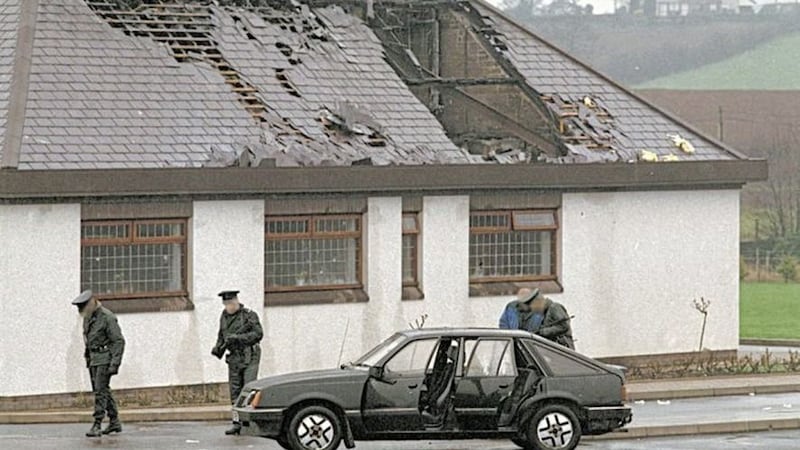An oesophageal cancer survivor from Banbridge has told of how early detection allowed him to get a life-saving operation that only one-in-three diagnosed with the disease get the chance to have.
Adrian Hale (58) was first diagnosed with oesophageal cancer, sometimes known as ‘heartburn cancer’, in the autumn of 2018.
According to the Northern Ireland Cancer Registry, oesophageal cancer has a survival rate of around 20 per cent – this rises to 65 per cent when caught early, however just one per cent of people survive when the cancer is found at a late stage.
More: Young adults who had childhood cancers being denied mortgages in their 30s, new research reveals
More than two-fifths of cases are caught at this later stage, often due to the cancer’s vague and common symptoms, such as difficulty swallowing or food getting stuck, heartburn that won’t go away or problems with indigestion.

“I was having trouble swallowing, a lot of discomfort, and as a lot of people do, I googled what was going on and my symptoms said I had a hiatus hernia,” Mr Hale said.
His doctor agreed that it could be a hiatus hernia – a common condition in those over 50 – but because had previously had a stomach ulcer, he was referred to hospital.
“They decided to send me to Daisy Hill Hospital to have an endoscope down just to be safe, to rule anything else out, and it was then when they discovered the lump.
“The consultant was pretty sure it was cancerous and he had taken a biopsy to send on to get tests done.”
Initially, Mr Hale said he came to terms with his diagnosis “more or less straight away” but he “didn’t realise the severity of what it was”.

“I was not aware of it at all, totally oblivious to it, never even thought it was a thing,” he said.
It wasn’t until he met his surgeon at City Hospital in March 2019 that he realised how serious it can be.
“He filled me in on the details of percentages.
“I was one of basically a third of people with oesophageal cancer who get to see a surgeon because usually by the time it gets to the point of meeting a surgeon, it’s nearly too late.
“I was got at a very early stage because I actually did go and see about it.”
After a successful operation, which Mr Hale said is “one of the biggest surgeries that they’ll put the body through”, he was faced with three more cycles of chemotherapy to “be on the safe side”.
“I would say the biggest low point was starting back on to chemo again after the surgery,” he said.
“I really did struggle with my chemo before surgery because it was very severe on my system. It was quite a severe chemo I was on.”
Five years on from surgery, Mr Hale has just received the news that he is all-clear.
“It’s a fantastic feeling to know that you’re cancer-free,” he said.
This Oesophageal Cancer Awareness Month, our friends at Action Against Heartburn have been sharing some figures around...
Posted by OGCancerNI on Wednesday 5 February 2025
He now helps others who have been diagnosed with oesophageal cancer by volunteering with OGCancerNI – a charity which raises awareness of oesophago-gastric cancer.
He encourages anyone who has been experiencing persistent indigestion issues to visit their GP.
“Not all indigestion problems come from cancer, but you’re far better getting it checked out to be on the safe side.”







